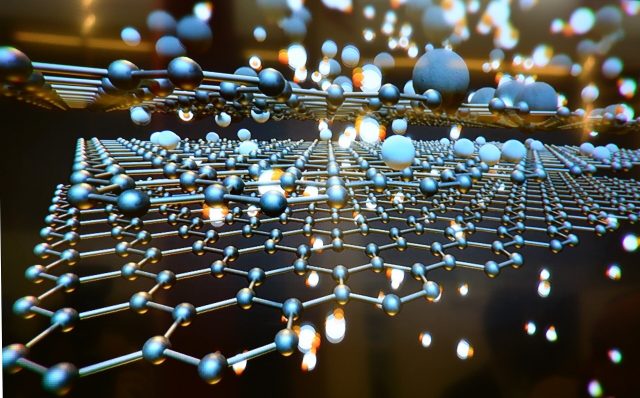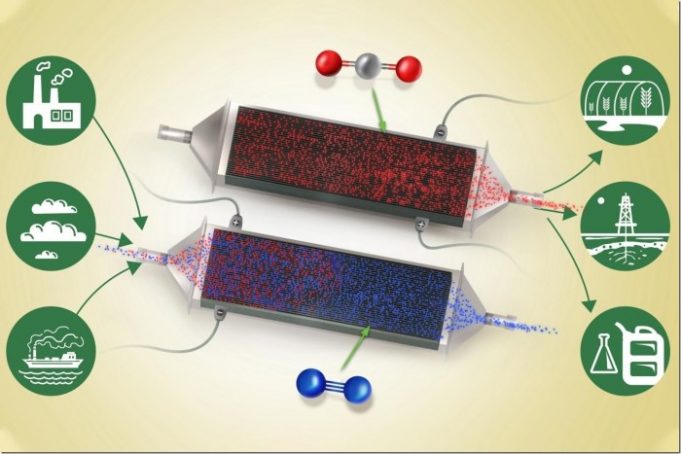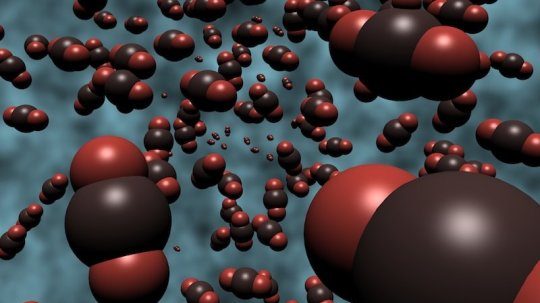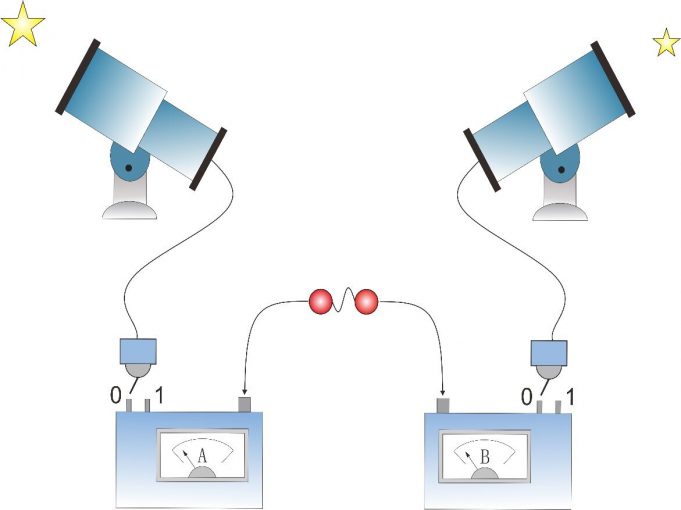It is something quite common in physics: electrons leave a certain material, they fly away and then they are measured. Some materials emit electrons, when they are irradiated with light. These electrons are then called "photoelectrons." In materials research,...
Researchers at the University of Sydney have created a new material that has the potential to reduce CO2 emissions released during the refinement process of crude oil by up to 28 percent.
Silica-alumina materials are among the most common solid acids...
Most of today's solar panels capture sunlight and convert it to electricity only from the side facing the sky. If the dark underside of a solar panel could also convert sunlight reflected off the ground, even more electricity might...
A new way of removing carbon dioxide from a stream of air could provide a significant tool in the battle against climate change. The new system can work on the gas at virtually any concentration level, even down to...
A common greenhouse gas could be repurposed in an efficient and environmentally friendly way with an electrolyzer that uses renewable electricity to produce pure liquid fuels.
The catalytic reactor developed by the Rice University lab of chemical and biomolecular engineer...
In a new study, researchers demonstrate creative tactics to get rid of loopholes that have long confounded tests of quantum mechanics. With their innovative method, the researchers were able to demonstrate quantum interactions between two particles spaced more than...
Researchers at Columbia University have developed a way to harness more power from singlet fission to increase the efficiency of solar cells, providing a tool to help push forward the development of next-generation devices.
In a study published this month...
Excess heat given off by smartphones, laptops and other electronic devices can be annoying, but beyond that it contributes to malfunctions and, in extreme cases, can even cause lithium batteries to explode.
To guard against such ills, engineers often insert...
Researchers at the University of Surrey believe their tin based perovskite solar cell could clear the runway for solar panel technology to take off and help the UK reach its 2050 carbon neutral goal.
As countries look to get to...
The most affordable, efficient way to harness the cleanest, most abundant renewable energy source in the world is one step closer to reality.
The University of Toledo physicist pushing the performance of solar cells to levels never before reached made...
Flinders University archaeologists are using cutting edge subsurface imaging technology to help assist community groups map unmarked graves and manage their cultural heritage.
"This is a huge issue, particularly for rural communities," says Dr Ian Moffat, Senior Research Fellow in...


















